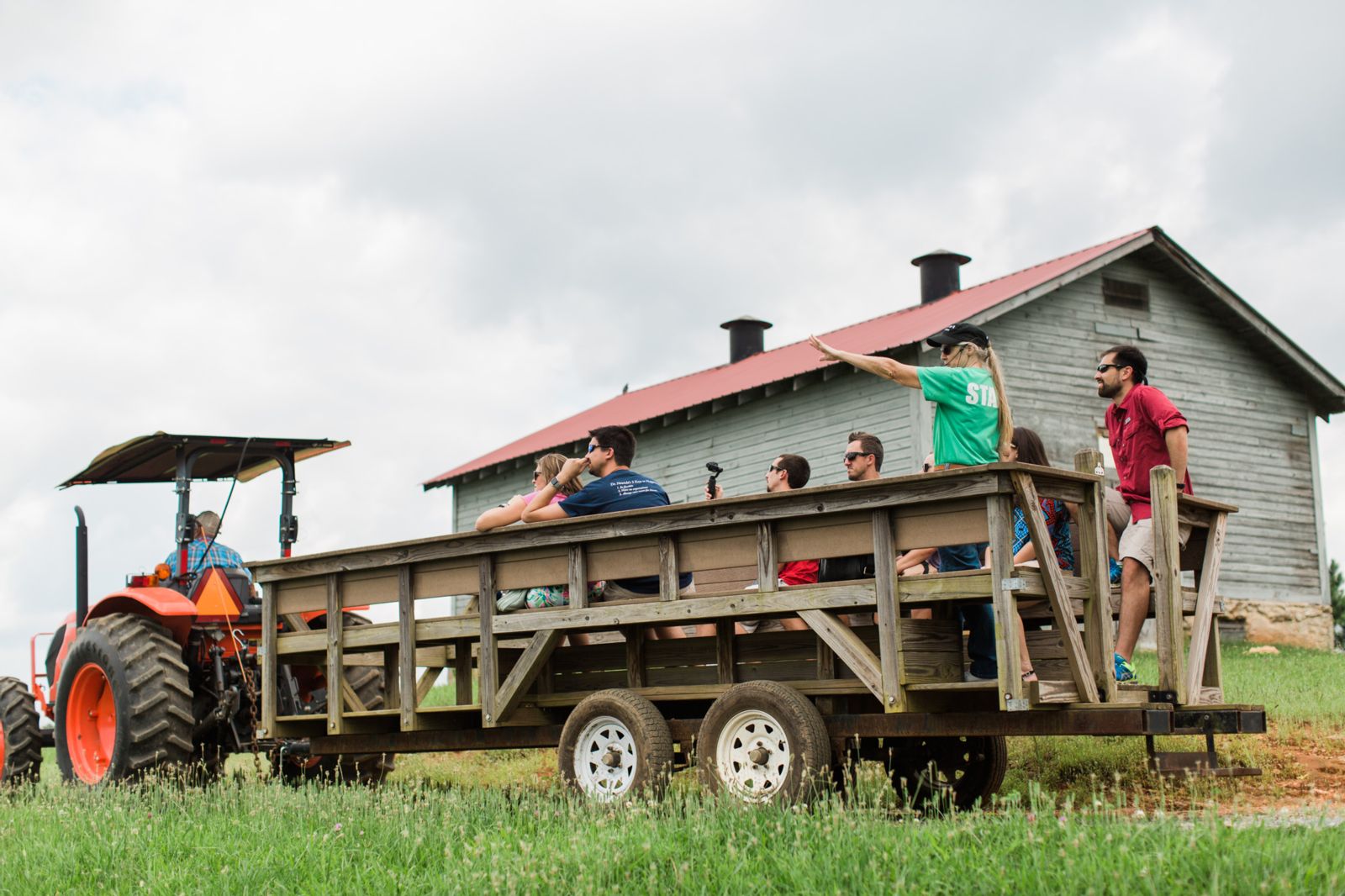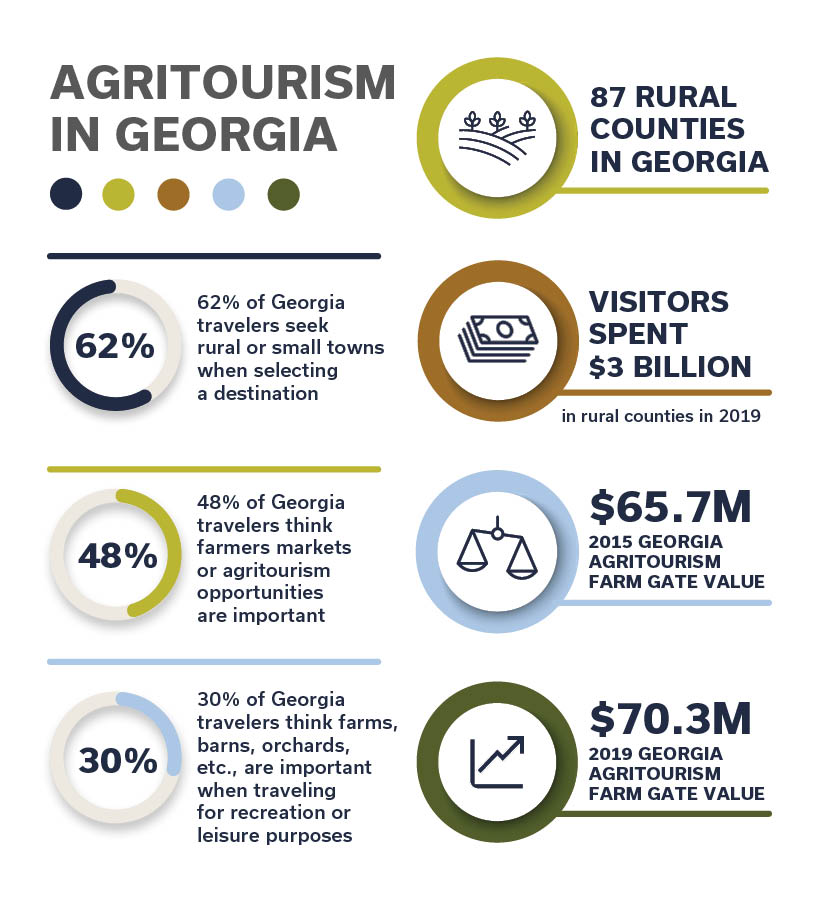Agriculture + Lifestyle
COVID-19 creates demand for agritourism
Posted on March 1, 2021 7:00 PM
By Jay Stone, Georgia Farm Bureau
Like most other economic sectors, Georgia tourism took a big hit in 2020 as the coronavirus spread and people opted for less travel.
Still, Dr. John Salazar thinks better days are coming, particularly for those who own and operate agritourism venues. Salazar, the coordinator of UGA’s Hospitality and Food Industry Program, said there is significant opportunity on the horizon for rural tourism, much of which exists as agritourism, to capitalize on travel tendencies prompted by COVID-19.
“Now is the time for rural communities to really embrace agritourism. That’s because people are shying away from major urban markets and they’re looking for activities and experiences that are more conducive to social distancing,” Salazar said in his presentation during the 2021 Virtual Ag Forecast.
A set of surveys that began in 2020 are measuring Americans’ attitudes about travel during the COVID-19 pandemic. The surveys are being conducted in four waves by UGA, the Georgia Department of Economic Development, Georgia River Network, Hart County,
story continues below

Mercier Orchards is one of many GFB Certified Farm Markets that offer visitors farm tours. Photo by Sidney Middlebrooks
Jekyll Island Authority, Lake Lanier, Tifton Tourism, Visit Augusta and Visit Savannah. The first two waves were done in spring 2020 and fall 2020. A third wave was sent out the week beginning Feb. 15 and a fourth is planned for early summer. The surveys are designed to get a measure of evolving traveler attitudes. By Jan. 20, more than 6,900 people had responded.
In 2019, before the pandemic, tourism spending overall was $32 billion statewide, providing 287,000 jobs, many of which were in lodging and food service. Rural Georgia, which Salazar defined as the 87 counties not listed as parts of metropolitan statistical areas, accounted for $3 billion of that spending, an average of $34 million per rural county.
Two key statistics from the survey indicate more travelers are headed to the country. First, 62% of respondents seek rural or small towns when selecting trip destinations. Second, 48% said farmers’ markets or agritourism opportunities were important to them.
“There is market demand for Georgia agritourism,” Salazar said.
Salazar noted that people have grown weary of quarantine measures and are feeling cooped up. Simultaneously, there is a growing desire to visit places that make social distancing easier to manage because they are less crowded than attractions in metro areas.
While the coronavirus spared no area of the state, Salazar said rural hospitality businesses – primarily lodging and food establishments – took a smaller hit percentage-wise than their urban counterparts. Plus, the survey results showed that travelers think they’ll be safer as more time passes. He said this could be an indication that business could rebound more quickly once COVID-19 vaccinations make it safer for people to move about.
Money may be available for agritourism operators to market their venues and services. Portions of tourism-related taxes like the $5 per night state hotel fee and other hotel/motel taxes are designated to be funneled back into rural communities for economic development. This revenue from the 87 rural Georgia counties increased from $260.5 million in 2015 to $314.9 million in 2019.

Part of that money is directed to local tourism development through direct marketing organizations (DMOs) like chambers of commerce, Mainstreet organizations and local tourism organizations. Salazar encouraged agritourism businesses to develop relationships with DMOs to promote their venues, goods and services, and to partner with complementary local businesses to leverage their promotional power.
“Those dollars are coming in from the visitors and not the local residents,” Salazar said. “In the end, it’s a really good benefit for that community because you’re utilizing the visitor taxpayer dollars for these promotional tactics.”
Specifically, he said agritourism businesses should become familiar with DMOs’ advertising calendars and develop plans to align their events with promotions the DMOs are already doing.
To watch Salazar’s presentation, visit www.gfb.ag/agforecastkeynotes and click on the keynote session video. Salazar’s portion begins at the 12- minute mark.